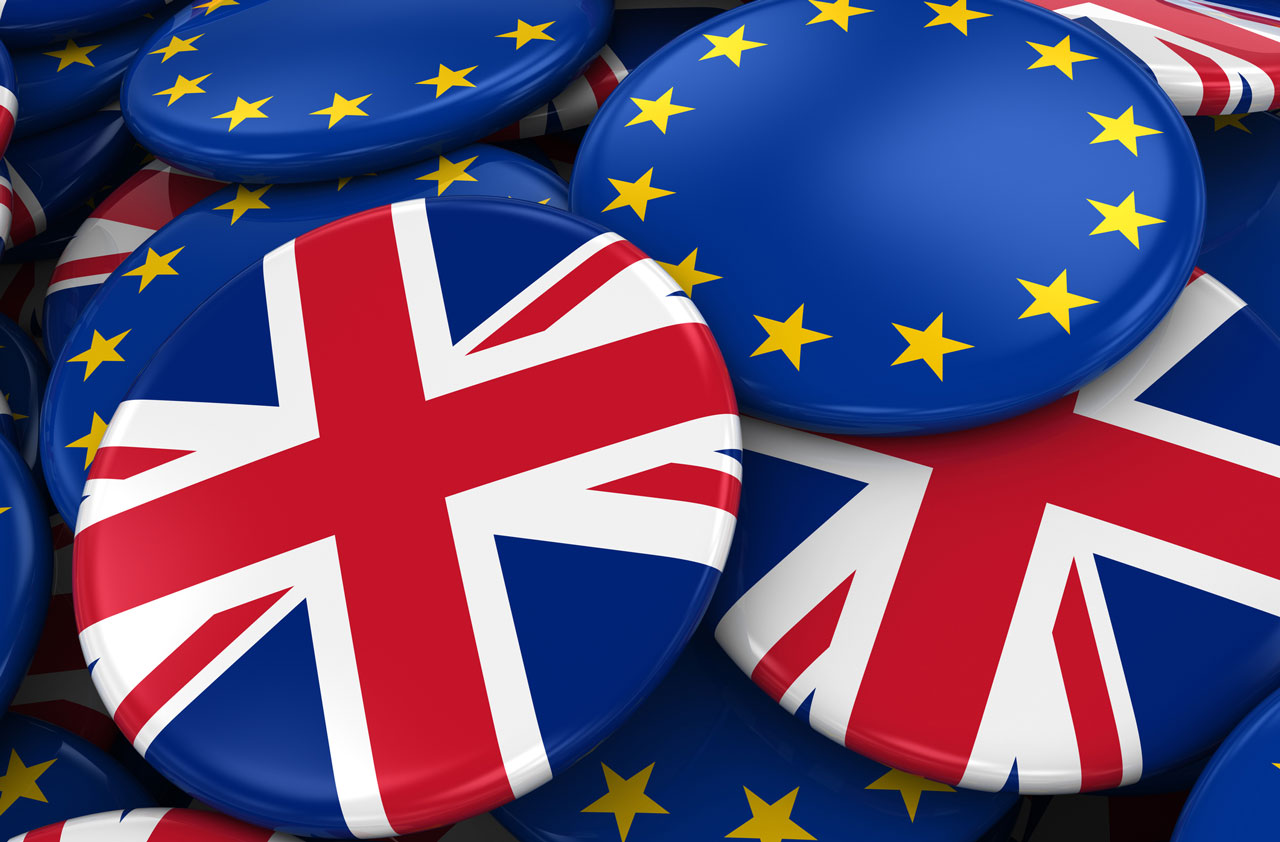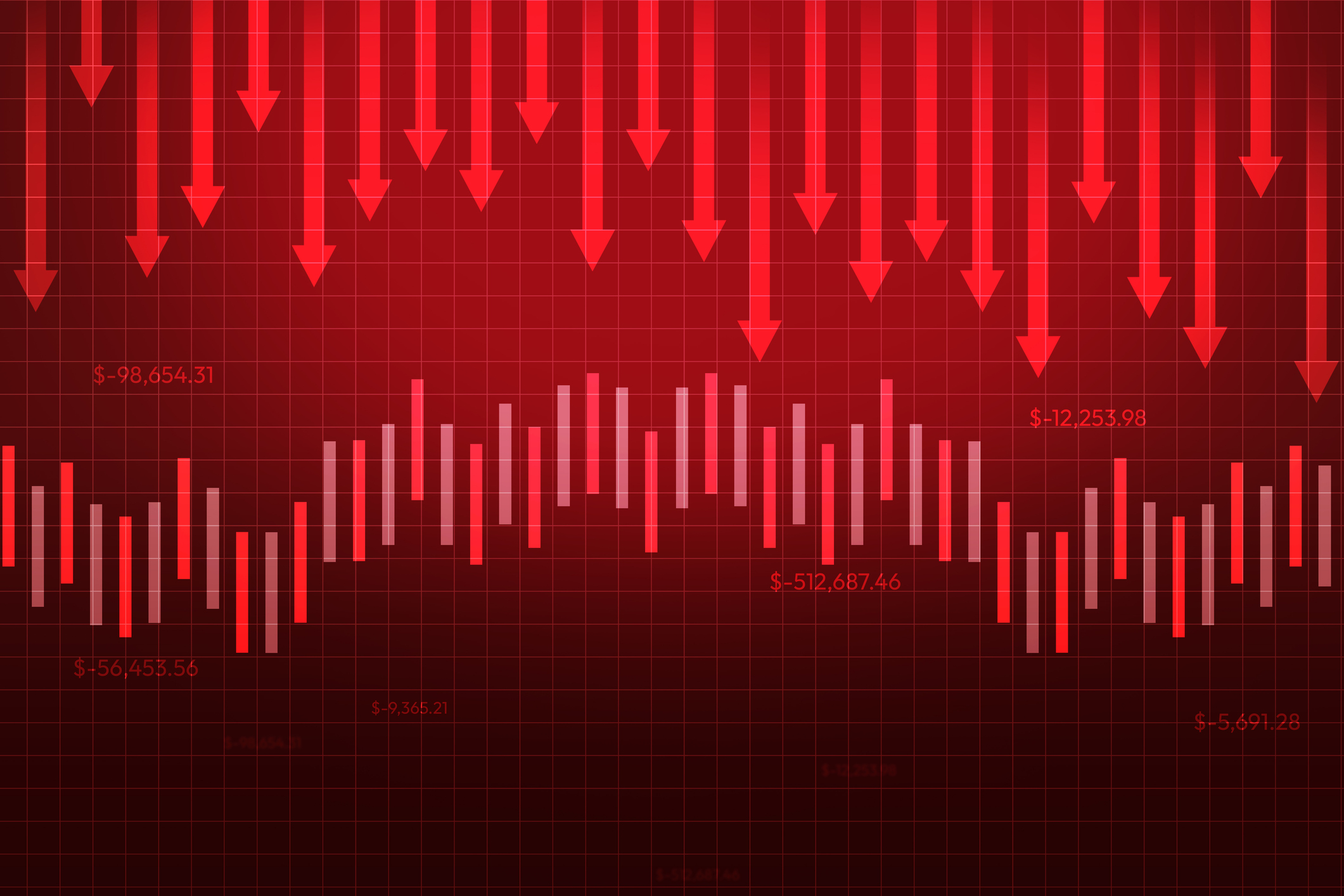What Brexit Means for American Investors
How to take advantage of opportunities in volatile markets.


Profit and prosper with the best of Kiplinger's advice on investing, taxes, retirement, personal finance and much more. Delivered daily. Enter your email in the box and click Sign Me Up.
You are now subscribed
Your newsletter sign-up was successful
Want to add more newsletters?

Delivered daily
Kiplinger Today
Profit and prosper with the best of Kiplinger's advice on investing, taxes, retirement, personal finance and much more delivered daily. Smart money moves start here.

Sent five days a week
Kiplinger A Step Ahead
Get practical help to make better financial decisions in your everyday life, from spending to savings on top deals.

Delivered daily
Kiplinger Closing Bell
Get today's biggest financial and investing headlines delivered to your inbox every day the U.S. stock market is open.

Sent twice a week
Kiplinger Adviser Intel
Financial pros across the country share best practices and fresh tactics to preserve and grow your wealth.

Delivered weekly
Kiplinger Tax Tips
Trim your federal and state tax bills with practical tax-planning and tax-cutting strategies.

Sent twice a week
Kiplinger Retirement Tips
Your twice-a-week guide to planning and enjoying a financially secure and richly rewarding retirement

Sent bimonthly.
Kiplinger Adviser Angle
Insights for advisers, wealth managers and other financial professionals.

Sent twice a week
Kiplinger Investing Weekly
Your twice-a-week roundup of promising stocks, funds, companies and industries you should consider, ones you should avoid, and why.

Sent weekly for six weeks
Kiplinger Invest for Retirement
Your step-by-step six-part series on how to invest for retirement, from devising a successful strategy to exactly which investments to choose.
The United Kingdom’s recent break from the European Union sent shock waves across the pond as global markets sank on news of Britain’s “Brexit” vote. The recovery was quick, but no one can say for sure how events will unfold from here—politically, economically or financially. Brace yourself for plenty of volatility. But investors who don’t overreact can survive Brexit unscathed, and they may come out ahead
.
In the two trading days following Britain’s surprising vote, Standard & Poor’s 500-stock index plunged 112 points, or 5%. But the broad market measure promptly cut its losses. A week after the vote, the S&P had shaved its Brexit-induced loss to less than 1%. At its recent close of 2099, the S&P was up 3% for the year and close to its May 2015 high.
From just $107.88 $24.99 for Kiplinger Personal Finance
Become a smarter, better informed investor. Subscribe from just $107.88 $24.99, plus get up to 4 Special Issues

Sign up for Kiplinger’s Free Newsletters
Profit and prosper with the best of expert advice on investing, taxes, retirement, personal finance and more - straight to your e-mail.
Profit and prosper with the best of expert advice - straight to your e-mail.
The market action underscores the importance of not making snap decisions about your investments. “Better to wait for opportunities to be revealed by volatility than to be a part of it,” says Andrew Bell, chief executive of Witan Investment Trust, in London.
Although there may be more gut-wrenching days ahead, similar geopolitical shocks provide an encouraging blueprint, says Jeff Kleintop, chief global investment strategist at Charles Schwab. He points to the Japan earthquake and related nuclear accident in 2011, the U.S. debt-ceiling standoff later that year, and the European debt crisis of 2012. In all three instances, single-digit-percentage market declines on the first day turned into double-digit losses over time, with the S&P 500 losing 16%, 14% and 11%, respectively. But stocks rebounded to their pre-shock levels in three or four months, says Kleintop.
Still, economic growth will likely slow as countries reconfigure their trade and economic relationships, and currencies realign. Kiplinger predicts that Europe will escape recession this year, but the odds are 50-50 for 2017. We expect U.S. economic growth of 1.8% this year, down from an earlier forecast of 2%. The good news for U.S. stocks is that S&P 500 firms derive less than 3% of sales from the U.K., making Brexit a speed bump, not a brick wall, for a resilient market. Here’s what to do if volatility erupts anew, because of Brexit or anything else.
Rejigger your portfolio.
A Brexit-led flight to U.S. securities only intensified 2016’s bond market rally, pushing yields on 10-year Treasuries below 1.5%, down from 2.3% at the start of the year. (Bond prices rise when yields fall.) If your portfolio has strayed from your long-term objectives, consider taking recent heady profits in bonds and moving cash into shares of large U.S. companies.
Evaluate your risk tolerance.
Can you stomach a Brexit-caliber calamity? If not, you may have too much invested in stocks. “This type of financial self-assessment can only be done during periods of actual losses—it can’t be simulated,” says strategist David Lafferty, of Natixis Global Asset Management.
Have a shopping list ready.
Now is the time to buy high-quality dividend stocks, says Hank Smith, chief investment officer of Haverford Trust. Stocks he likes include Johnson & Johnson (symbol JNJ, $121) and United Technologies (UTX, $103). Among banks, which suffered some of the largest Brexit losses, he recommends Wells Fargo (WFC, $47), which does most of its business in the U.S.
Profit and prosper with the best of Kiplinger's advice on investing, taxes, retirement, personal finance and much more. Delivered daily. Enter your email in the box and click Sign Me Up.

Anne Kates Smith brings Wall Street to Main Street, with decades of experience covering investments and personal finance for real people trying to navigate fast-changing markets, preserve financial security or plan for the future. She oversees the magazine's investing coverage, authors Kiplinger’s biannual stock-market outlooks and writes the "Your Mind and Your Money" column, a take on behavioral finance and how investors can get out of their own way. Smith began her journalism career as a writer and columnist for USA Today. Prior to joining Kiplinger, she was a senior editor at U.S. News & World Report and a contributing columnist for TheStreet. Smith is a graduate of St. John's College in Annapolis, Md., the third-oldest college in America.
-
 Dow Leads in Mixed Session on Amgen Earnings: Stock Market Today
Dow Leads in Mixed Session on Amgen Earnings: Stock Market TodayThe rest of Wall Street struggled as Advanced Micro Devices earnings caused a chip-stock sell-off.
-
 How to Watch the 2026 Winter Olympics Without Overpaying
How to Watch the 2026 Winter Olympics Without OverpayingHere’s how to stream the 2026 Winter Olympics live, including low-cost viewing options, Peacock access and ways to catch your favorite athletes and events from anywhere.
-
 Here’s How to Stream the Super Bowl for Less
Here’s How to Stream the Super Bowl for LessWe'll show you the least expensive ways to stream football's biggest event.
-
 How the Stock Market Performed in the First Year of Trump's Second Term
How the Stock Market Performed in the First Year of Trump's Second TermSix months after President Donald Trump's inauguration, take a look at how the stock market has performed.
-
 Dow Rises 497 Points on December Rate Cut: Stock Market Today
Dow Rises 497 Points on December Rate Cut: Stock Market TodayThe basic questions for market participants and policymakers remain the same after a widely expected Fed rate cut.
-
 Risk Is Off Again, Dow Falls 397 Points: Stock Market Today
Risk Is Off Again, Dow Falls 397 Points: Stock Market TodayMarket participants are weighing still-solid earnings against both expectations and an increasingly opaque economic picture.
-
 What the Rich Know About Investing That You Don't
What the Rich Know About Investing That You Don'tPeople like Warren Buffett become people like Warren Buffett by following basic rules and being disciplined. Here's how to accumulate real wealth.
-
 How to Invest for Rising Data Integrity Risk
How to Invest for Rising Data Integrity RiskAmid a broad assault on venerable institutions, President Trump has targeted agencies responsible for data critical to markets. How should investors respond?
-
 What Tariffs Mean for Your Sector Exposure
What Tariffs Mean for Your Sector ExposureNew, higher and changing tariffs will ripple through the economy and into share prices for many quarters to come.
-
 How to Invest for Fall Rate Cuts by the Fed
How to Invest for Fall Rate Cuts by the FedThe probability the Fed cuts interest rates by 25 basis points in October is now greater than 90%.
-
 Are Buffett and Berkshire About to Bail on Kraft Heinz Stock?
Are Buffett and Berkshire About to Bail on Kraft Heinz Stock?Warren Buffett and Berkshire Hathaway own a lot of Kraft Heinz stock, so what happens when they decide to sell KHC?